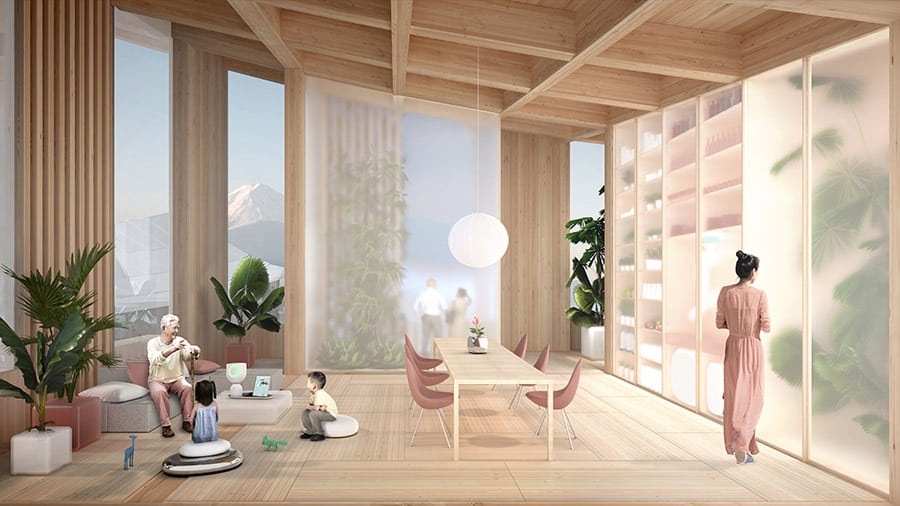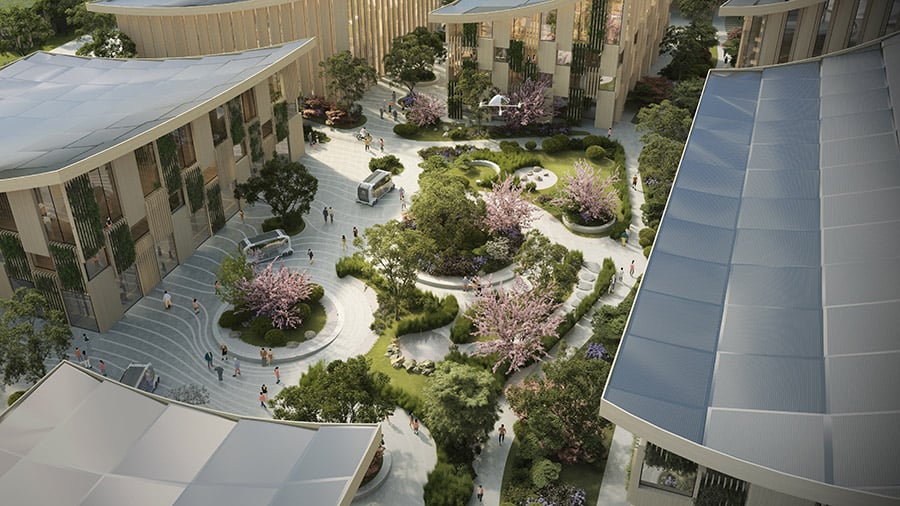Toyota unveils smart city of the future to enhance health and mobility for residents

Revealed at CES 2020, Toyota unveiled plans to build a prototype smart city in Japan, which combines autonomy, robotics, personal mobility, smart homes and AI in a real-world environment.
Called the Woven City, the site will serve as a home to full-time residents and researchers who will be able to test and develop technologies. Toyota plans to populate Woven City with its employees and their families, retired couples, retailers, visiting scientists, and industry partners.
Within the smart city, homes will be equipped with the latest in human support technologies, such as in-home robotics to assist with daily living. The homes will use sensor-based AI to check occupants’ health, take care of basic needs and enhance daily life.
These smart health features can help people to live more independently, which is important amidst the global ageing population phenomenon.
Akio Toyoda, President of Toyota Motor Corporation, commented: “Building a complete city from the ground up, even on a small scale like this, is a unique opportunity to develop future technologies, including a digital operating system for the city’s infrastructure.
“With people, buildings and vehicles all connected and communicating with each other through data and sensors, we will be able to test connected AI technology… in both the virtual and the physical realms… maximizing its potential.”
You can see Toyota’s plans for the Woven City in the short video below:
As well as enhancing the health and wellbeing of residents, Woven City will also integrate other innovative features. For instance, the city will categorise streets into three types: for faster vehicles only; for a mix of lower speed, personal mobility and pedestrians; and for a park-like area for pedestrians only.
Woven City will also be fully sustainable, with buildings made mostly of wood to minimise the carbon footprint, combined with robotic production methods. The rooftops will be covered in photo-voltaic panels to generate solar power in addition to power generated by hydrogen fuel cells.
To move residents through the city, only fully-autonomous, zero-emission vehicles will be allowed. This builds on Toyota’s revelation at the 2019 Tokyo Motor Show, where the company unveiled its new battery electric vehicles (BEV), highlighting its modern take on mobility products.
Amongst the futuristic mobility products were a two-seater BEV to help elderly people and people with mobility needs on short-distance trips; a seated BEV that looks similar to a mobility scooter for people with reduced mobility; and a wheelchair power assist that connects to manual wheelchairs, providing additional support to active wheelchair users.

Additionally, Woven City will incorporate parks for leisure and social gatherings, encouraging interaction amongst residents.
The site is planned for early 2021.

